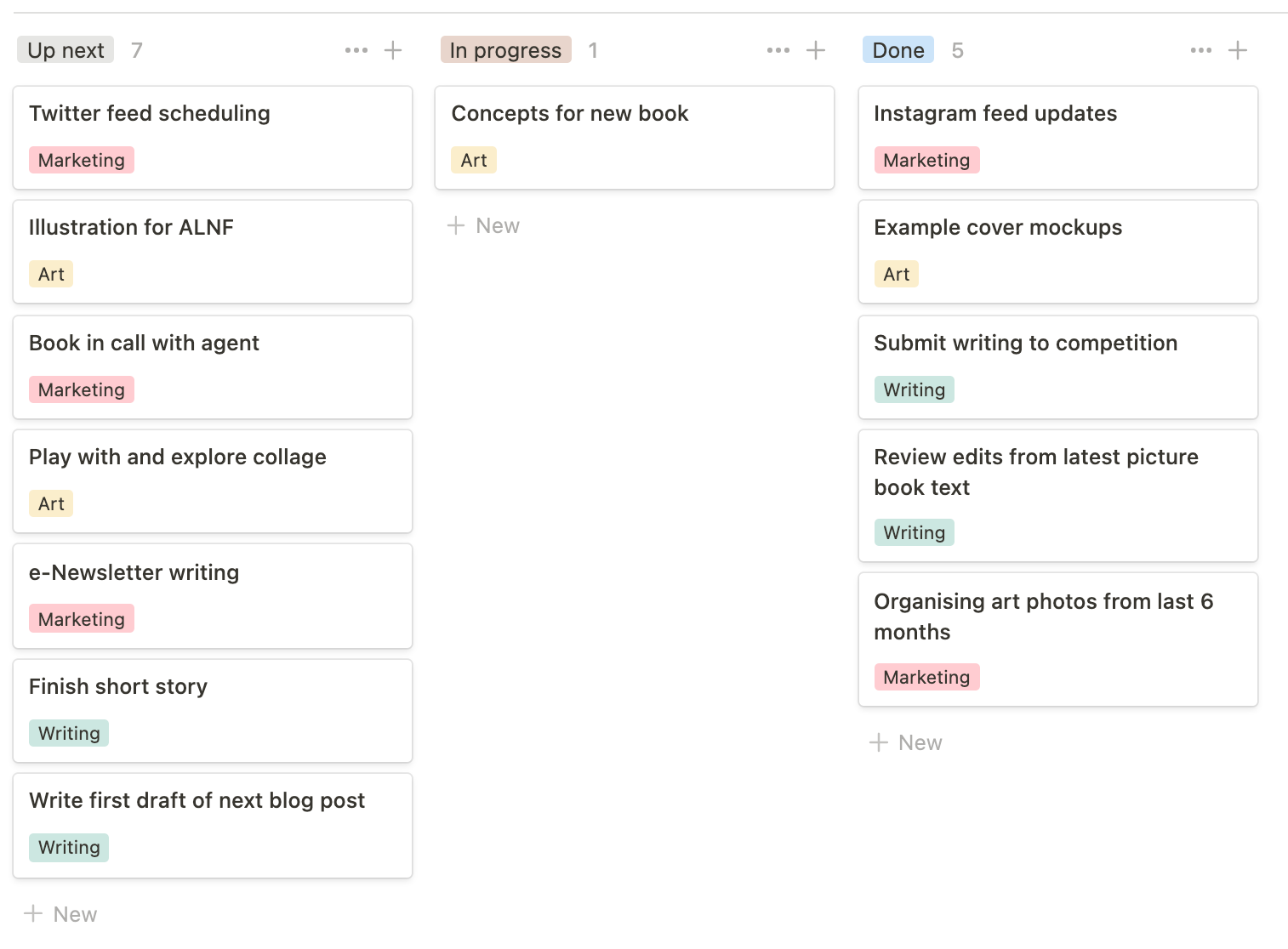If you look up the word ‘priority’ in the dictionary you’ll notice something peculiar; there is no plural form. By definition, priority is singular – a thing that is regarded as more important than the others. So, when we try and make “priorities”, we attempt to tell ourselves what’s important but what we’re really doing is deciding that nothing is.
Instead of saying yes, how about saying this before that?
It’s easy for any artist to reel off a list of things that feel important. Do I work on this piece or that one? Do I invest time in social media marketing? Email marketing? Which medium do I work in, I love them all? I’ve been guilty of writing all these tasks down, then categorising them based on the type of activity, then ordering them in those categories. A bit like this:

Of course, what happens in this model is I’ve still got 3 or so things that appear to be equally important. I haven’t really prioritised in the truest sense.
At least until parallel universes open up, time and life are linear. One thing must come before another. It’s not possible to work on e-marketing and exploring a new medium at exactly the same time. I might think I’m ‘multi-tasking’ (also a fallacy by the way) by switching my attention quickly between the two activities but the risk is that both tasks take twice as long for the switching cost involved and, chances are, the quality of each won’t be as good.
Focussing on one thing at a time
But, if we acknowledge that there can be only one priority at a time, things begin to look very different. Firstly, we need to think much more about why something is more important than another. We have to actually make the choice – this before that.
Here’s an alternative way to structure and organise work.
- The Done column gives me a sense of achievement
- The In progress column only has one thing in it at a time. If I work on Concepts for a new book and then switch tasks, I move that item back in to Up next and swap it with what I now believe is the most important thing to work on.
- The Up Next column contains a single, prioritised list. It forces me to choose what’s important across categories. Yes, the order can change, re-prioritising happens all the time. But, in a single-column format, there’s nowhere for me to hedge my bets.

How to decide what’s important?
There are many reasons why something should be more important than another – that’s going to be different for every artist at any one time; tasks can be urgent, have high impact, make us feel good, make us money, etc. But, by forcing our ‘priorities’ into a single list, regardless of how we want to ‘categorise’ those things conceptually, what we’re left with is accountability to ourselves and, more importantly, focus.
Yes, there is fear in getting the ranking wrong, of working on something that may not be indeed as important as something else, but it’s better than fooling ourselves into thinking we’re doing a lot of important work all the time. A single list makes sure that we can continually ask the question, anyway, so it’s likely that we may just be one or two items off at any given time, but by working this way, we’re increasing the chances that we’re working on the most valuable things first – and that’s really the priority.
